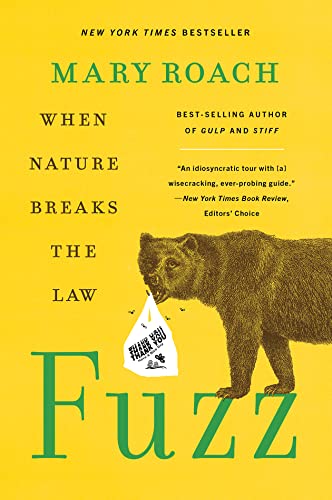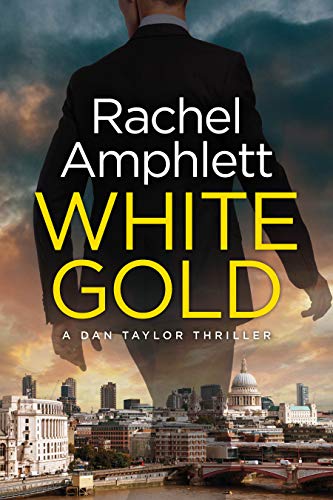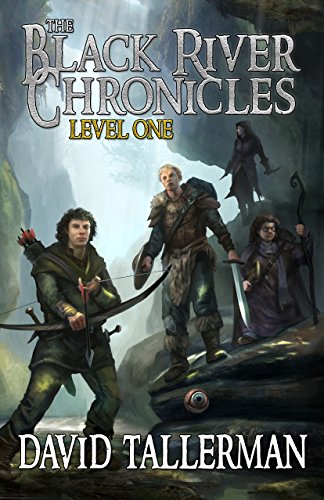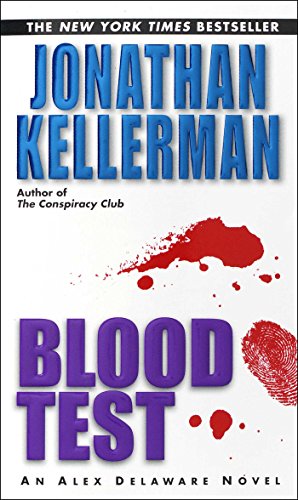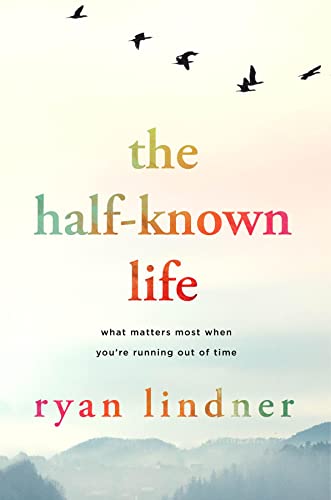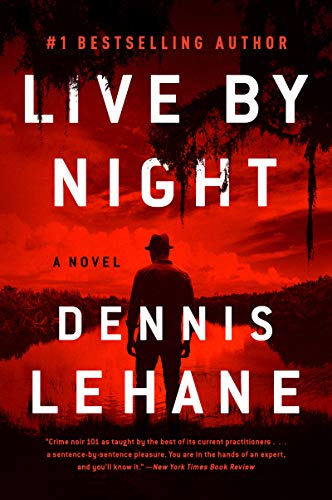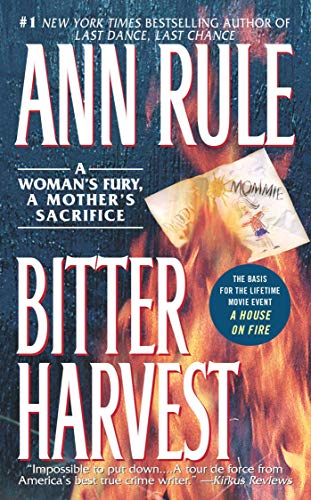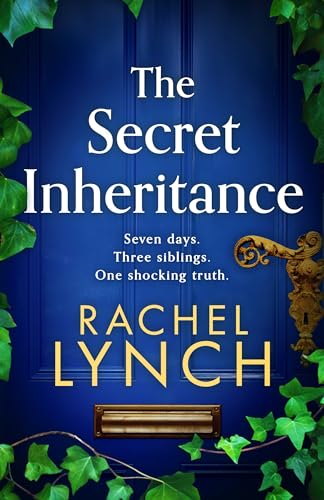Let’s be clear.
The reason you have a Kindle (or use one or more of the Kindle device apps) is that you love to read. And the reason you read Kindle Nation is that, along with whatever interest you may have in Kindle tips, Kindle tricks, and Kindle news, you love to read. The Kindle platform and innovations like the new AmazonEncore publishing imprint allow us to be among the first to learn about and sample the work of emerging writers of distinction, and I’m proud that in the past our own Free Kindle Nation Shorts program has introduced thousands of readers to must-read authors (depending, as always, on your individual tastes) like Joe Konrath , Sue Lange
, Sue Lange , Rena Walmsley
, Rena Walmsley , Elizabeth Stuckey-French
, Elizabeth Stuckey-French , and April Hamilton.
, and April Hamilton.
But the citizens of Kindle Nation have been putting up with a lot lately in the form of high-priced books and publishers’ price-fixing hijinks. It seems to me that we all deserve a treat, and what better treat than a really great Free Kindle Nation Short?
So, we’re back! But you should continue reading only if you think you might be interested in a novel that has received 5-star reviews from 20 of its 22 Amazon reviewers, or has been described by The Summer of Naked Swim Parties novelist Jessica Anya Blau as “scintillating, thrilling, and full of intrigue … A sexy, mysterious romp with literary overtones … Erica Jong meets Harlan Coben on a sticky summer night.”
novelist Jessica Anya Blau as “scintillating, thrilling, and full of intrigue … A sexy, mysterious romp with literary overtones … Erica Jong meets Harlan Coben on a sticky summer night.”
The novel in question is Audrey Braun’s A Small Fortune, and I don’t want to jinx her, but it wouldn’t surprise me if Ms. Braun became the second Free Kindle Nation Shorts alum to be signed by AmazonEncore (Joe Konrath, of course, was the first). She is currently on a book tour with A Small Fortune, but she has been good enough to take the time to make a substantial 48-page excerpt available free to Kindle Nation readers. She’s also priced the complete Kindle edition of A Small Fortune, at least for now, at the Kindle readers’ sweet spot of $2.99, right here in the Kindle Store.
So, we’ll get right down to business here, but first, let me share a few of the other blurbs for Audrey Braun, in case you are not already convinced that you should keep reading and maybe even lay down $2.99 for a terrific debut by a novelist you’ll be hearing more from in the future:
- “A polished page-turner. Braun writes with verve and confidence in this stunning debut.” –Indiereader.
- “Nerve-grinding suspense… Strewn with jewels of beautiful writing and apt metaphors–enough to bring on a case of writer’s envy.” -Jessica Morrel, author of Bullies, Bastards And Bitches: How To Write The Bad Guys Of Fiction
- “The book is absolutely unputdownable.” -Rose City Reader
A Small Fortune
A novel
By
Audrey Braun
Copyright © 2010 Audrey Braun and reprinted here with her permission.
1
It was partly my fault for staying up so late copyediting the latest volume in Dee Dee Dawson’s Legends of Lust series. I had only gotten four hours of sleep, and most of that was spent dreaming of my red pen swerving in and out of primal, sultry, hot, and moist.
But the alarm never did go off. When I finally woke and saw the time, my first thought was that I had to fix something and fix it fast. Luckily, my husband Jonathon, the King of Organizational Protocol, had taken care of everything for our trip to Mexico–passports, tickets, arranging the cab. But he was also the one who had awakened before the alarm, shut it off, and disappeared somewhere in the house, leaving me to sleep in. This break in efficiency was exactly the kind of thing Jonathon loathed, and I would have been a lot more concerned about his state of mind, not to mention pissed off, if I wasn’t so focused on trying to find Oliver’s flip-flops from last summer.
“Sweetheart, you can buy new ones when we get there!” I shouted from the bedroom as I stopped to slip on my white linen pants, the first real sign I was about to trade in the Portland rain for a week of sultry, hot sun.
“I’m not walking around in new flip-flops!” Oliver yelled from somewhere in the house. “The place between my toes will hurt!” That edge in his voice was like a pinprick to the chest. I couldn’t wait for him to shed this surly sixteen year-old who disliked me more than he disliked all the other things he disliked in the world.
I snatched up the last of my toiletries and was midway down the stairs when drums pummeled two floors up from the basement. I grabbed my hair at the roots. Led Zeppelin, Immigrant Song, if I wasn’t mistaken, which was one more thing Oliver disliked about me. I was listening to Zeppelin long before he was born, and one would think this was a good thing, to have this in common, but Oliver assured me that I’d never listened to Zeppelin the way he listened to Zeppelin, and drove the point home with an eye roll.
“Jonathon, where are you!” I yelled, as if he could hear.
I pulled out my cell phone. Oliver kept his phone on vibrate in his back pocket and would feel it even if he couldn’t hear it. Get your ass up here, I texted. I’d never sworn at him in a text before.
The drumming stopped with the final crash of a cymbal.
I made it to the front hallway just as Jonathon appeared at the front door with the tote bag from last summer filled with suntan oil and flip-flops and what must have been mildewed towels from the coast, all of which we’d tossed into the garage months ago. He looked as if he’d been awake for hours, all smiles and coordination. He was wearing a white t-shirt and jeans, his blond hair soft and uncombed around his face. I hadn’t seen this side of him in ages. His expression had been set on fatigue for so long I had forgotten how it was supposed to look. He appeared younger. Happy. He hadn’t shaved and the stubble gave his mouth a brawny kind of sex appeal.
“Where have you been?” I asked. The double meaning wasn’t lost on me.
He smiled and dug the flip-flops out and handed them to Oliver coming up the basement stairs. He kissed me on the lips with a manner so calm and warm I didn’t want to ruin it by mentioning the alarm.
Oliver slipped into the flip-flops and the smell of mildew filled the foyer. The flip-flops were at least a size too small.
“You’re not going to wear those on the plane, are you?” I asked, sounding more critical than I’d meant to.
Oliver rolled his eyes, plugged his iPod buds into his ears, lugged his backpack over his shoulder, and even though he’d kept us all from leaving on time, he was the first to head out the door and into the cab.
It’d been years since we’d taken a family vacation. One might assume being married to the president of a bank meant that my life was stuffed with cash and jewels and exotic vacations. But these days banks were failing, and Jonathon’s was only a small local outfit to begin with. Pacific Savings and Trust, “The People’s Bank” written in small letters beneath the name on billboards. I once made a joke about it being a subliminal reference to China, the nation with all the cash. Jonathon didn’t think it was funny.
I may have been my mother’s daughter, a woman whose interest in playing the stock market and then subsequent death brought Jonathon and I together in the first place, but finances didn’t interest me in the slightest. What interested me was the fact that Jonathon, who never played loose with the family budget, who liked to remind me we were in a recession every time I purchased a pair of shoes, had arranged this last-minute vacation, and it could not have come at a better time. He didn’t say so, but I was sure it had something to do with how on edge I’d become. I’d tried hiding it, hoping it would go away on its own. It didn’t. I worked out twice as hard at the gym but it was only a temporary fix for the stress buzzing beneath my skin. I tried yoga, then meditation, but my mind journeyed off to more anxious corners in a dark room full of sweaty people than it did when I sat alone in my kitchen with a cup of coffee and the glassy voices on NPR.
What was wrong with me?
“We’re due for a change, a vacation,” Jonathon had said over dinner just a week ago. More than anything I wondered if this was his attempt at giving our marriage the jumpstart it so badly needed. I would have packed that night if he’d asked me to.
But the day had come so quickly it felt as if we’d been instantly transported from our kitchen chairs to a cab without seatbelts, speeding through the crowded, lumpy cobblestone streets of downtown Puerto Vallarta.
A glare ricocheted off everything. Especially harsh on eyes from the Pacific Northwest. I tried deciphering Spanish storefronts but even without the glare I had no idea what anything meant. I’d minored in German, which seemed the opposite of Spanish, all somber quotes and fairytales where eyes were plucked out, bellies cut open, a boy was forced to live with scissors for hands. Verstehen Sie die Auswirkungen? Do you understand the implications! My professor liked to shout at the front of the room. The poor child bloodied everyone he came close to!
That seemed like a century ago.
Gutierrez Rizo, a sign read, and I whispered it on my tongue.
An ancient-looking man waved a Polaroid camera on a corner next to a donkey in a sunhat. I started to point it out to Jonathon but he was pecking on his BlackBerry in the front seat. I watched for several minutes. He didn’t look up. Not once. It was as if he’d been to Puerto Vallarta before. I was sure he never had.
Oliver moped behind aviator sunglasses in the back seat opposite me. I could hear the tin of music through the headphones in his ears. He would be deaf by the time he was twenty. A good mother would make him turn the music down. He pressed his forehead against the window.
“It’s dirty here,” he said.
“Look at the ocean,” I said. “It’s beautiful.” How would my favorite author, Joella Lundstrum describe it? Peacock blue. Undulating. A sensual invitation. I was afraid that sounded more like something out of Dee Dee Dawson’s Primal Pleasures series.
“Maggie says you can’t even drink the water,” Oliver said with that edge again. Maggie was his girlfriend of three months.
I found myself aching for the younger version of him, for the son I no longer had. A mix of longing and rage spread like a stain through my chest, and I suddenly burned for the days even before that, the days before marriage and motherhood when my work with literary novels felt serious and important, when the prose I combed through halted my breath, stunned me with clarity, articulated feelings for which I had no words. My days seemed grounded, purposeful, charged with forward momentum. The future was still unknown to me. Who would I marry? Where would we live? When would I become a mother?
“Maggie doesn’t have to drink the water,” I said, stupidly. “And neither do you.”
He rolled his eyes with a slow, scornful headshake.
I rolled my eyes with a slow, scornful headshake.
Sometimes mockery got a small laugh. This time it didn’t.
Last night I had slipped out of bed when I heard Oliver slam the door on Maggie’s Honda. I looked down from the bedroom window to see him stomp up the walkway with fists at his sides. Maggie jumped out and caught his arm. Oliver turned and whispered angrily in her face. She rose up on her clunky boots and did the same. Then Oliver raised his hand to her cheek. Gently. It rested there as he leaned into her ear. Maggie lifted her arms around his neck and they kissed. It went on long enough to make me squirm. They stopped and one, then the other, laughed.
“Celia. Come to bed.” Jonathon’s voice had been startling and strange in the dark.
I slipped into bed, thinking we had a flight to catch in the morning. For the next week the three of us would squeeze into a two-bedroom condo, share all our meals, sit side-by-side at the beach, swim together, walk the promenade at sunset. What on earth would we talk about? If ever I needed to rest up for something, this was it.
But Jonathon’s hand slid onto my breast. I started to turn away. “I love you,” he whispered, and the shock of his tone held me beneath his cupped hand. How long had it been since he’d said it like he meant it? How long since I’d said it that way myself?
I turned toward him and touched his cheek, resisting the impulse to pull away. I lifted off my camisole and kissed him with more passion than I was used to mustering. He tasted like toothpaste. My own breath was probably sour after hours of working with clenched teeth. I kissed him like I meant it anyway. There was nothing wrong with me. This was what I told myself over and over, going through the motions, hands, tongues, lips. I tried picturing a scene from Legends of Lust. The heat, the undoing, the explosion wild enough to leave a room soaked and in shambles. I was a slender nymph who could not get enough. More, more, more. I wanted others to see us, to feel our lust. Yes, yes, yes.
It was no use. Our lovemaking, at best, was like well-rehearsed theatre. A quick performance carried out with exactitude in the dark. At worst, it came to a halt during intermission, the final act never to be seen. Jonathon had begun to suffer periodic episodes of impotence. I couldn’t help but feel it was because of me.
Afterwards I sat on the toilet near tears, waiting to pee in the ghoulish orange glow of the nightlight, frustrated at a world that had done nothing to me. My husband was a decent man pushed to the brink by an industry he had no control over. My son a teenager doing what teenagers did, which in a sense, made him perfectly normal. What reason did I have to be so upset? Why was I so often teetering on the verge of rage and tears? The front door opened and closed. Oliver’s heavy footsteps, like a stranger’s, creaked the stairs. He was already taller than Jonathon, and thicker across the chest, but his face and coloring were identical to mine. Anyone could see he was my son. Same gray-blue eyes and dark wavy hair. Same narrow jawline. Same button-white teeth and that trademark dimple that came from my mother’s side of the family. When Oliver was a baby and smiled for the first time it was that dimple that helped me move beyond the strangeness of becoming a new mother and into more familiar territory. It made me miss my mother more than ever, but at the same time I felt her presence in the face of my beautiful boy. It was the most extraordinary gift Jonathon could have ever given me.
I drew in the stale cigarette smell of the cab, looked at Oliver moping beside me, and let it go. The truth was, I didn’t really mind getting paid for the guilty pleasure of combing through racy romance novels. I was grateful for the distraction, not to mention the paycheck. These books were recession-proof, barreling through like a million sexy warships keeping the publishing world afloat. And at the end of the day, Oliver was a good kid, a really good kid, on the honor roll every term since he began high school.
“I know it looks less than pristine here,” I said. “But keep in mind you’re coming from Portland. The whole world looks dirty compared to that.”
Oliver sighed and checked his phone. He snapped it closed and threw me a sad little smile, that rare crack in the sullen armor that meant he felt bad about something he’d said or done to me, or bad about something that was done to him, and he was checking in like a boy on a playground, making sure his mother was still close. And that was the thing. I was. I always would be. All he had to do was ask.
“I’m going to squeeze fresh orange juice for breakfast in the morning,” I said, patting his leg. “You’ll love it. I’ll make omelettes. After that, take your pick. We can swim at the beach or the pool. I’m looking forward to a run on that beach.”
“I hate swimming,” Oliver said.
I rolled my window down and dipped my head out like a dog. I came back. “You might change your mind when the temperature hits eighty-five degrees.”
“Doesn’t the condo have air conditioning?”
“Yes. But you won’t be in it much so it doesn’t really matter.”
“Great. I’ll go outside and get cancer instead.”
I curled my hands into fists. I looked between the seats at Jonathon pecking methodically on his BlackBerry.
“Are you working?” I asked.
“Crackberry,” Oliver mumbled, his hands now drumsticks whacking his thighs.
Jonathon didn’t seem to hear, didn’t even notice when the driver slammed his brakes and whipped between a car and a motorcycle, clearing bare inches on either side.
“Jonathon?”
He hit send and turned around and appeared to take a second before recognizing me as if his mind had been miles away and had only now returned.
“What’s wrong?” I asked.
He looked back at his BlackBerry, holding it slightly away to read the screen without his glasses.
“What are you doing?” I snapped. “You haven’t even looked out the window.”
“There’s nothing to see, Dad,” Oliver said, his forehead still glued to the glass, fingers now rapping the edge of the vinyl seat, causing it to vibrate beneath me.
How could Oliver even hear our conversation? I reached down and covered his hands with my own. “Please.” He gave me a snarky eye roll but his fingers stilled.
“Sorry, Honey,” Jonathon said. “A little work thing I had to take care of.” He smiled his smile. The one meant to soothe me but lately had a way of making me feel worse. “The bank needed my approval on something,” he said. “It’s fine.” He raised his face toward the glaring sunshine, horns blaring, pedestrians swarming. “We’re here. We made it.” He turned back in his seat.
I felt the usual hint of instability, as if I’d just entered a familiar room only to find someone had rearranged all the furniture without telling me.
Several more blocks of whipping corners and the cab driver said, “This is it!” He turned and stopped abruptly, throwing me toward Oliver in the seat. Oliver glared with embarrassment, as if I were making a fool of myself on purpose. The car stopped on a hill outside a white two-story complex with terra cotta tiles on the roof. Coconut palms towered above the thick grass. I rose from the car and glanced up. Large balconies jutted out with clear views of the ocean. Most had small tables and chairs and when I imagined having breakfast up there with the blue ocean spread out before me, I felt a warm affection for Jonathon.
“It’s beautiful,” I said, as Jonathon translated dollars into pesos. “Oopsy,” he said, “That’s not right.” Oopsy? Since when did Jonathon say oopsy? Oliver helped the driver pull the luggage from the trunk. A green and yellow bird flew overhead and landed on the branch of a tree covered in pink fuzzy blossoms. The air had the distinct tropical smell I identified with Florida and the Bahamas. A lush moist green mixed with sand and salt, and as the breeze picked up there was the smell of smoke and meat and garlic on a grill.
It was far more arresting, more alluring and peaceful than the picture Jonathon had shown me on the computer. It was easy to imagine a place like this transforming one’s apocalyptic stress, to borrow a phrase from Joella Lundstrum. The ocean breeze picked up and I was taken by surprise when the caress of linen against my skin made me think of sex. Not the kind whose touch left me feeling more alone, but the greedy kind I’d experienced during the affair I’d had with Seth Reilly. For years I’d boarded up the wonder of that affair into a hidden corner of my mind. For the sake of my family I repressed memories too painful and dangerous to release. But as I began to unwind, the memories escaped–breathless chases up the stairs to his apartment above his bookstore, deep kisses inside the door, one-by-one the shoes, scarf, jeans, blouse, bra, dropping across the floor, the final pull of panties down my freshly shaven legs. I could nearly feel myself standing there reading the spines on his bookshelves while he gazed at my naked body, his fingers twirling the tips of my long hair, his lips warming my cold, rain-soaked wrist. Anna Karenina, Les Miserables, Moby Dick, aphrodisiacs in my mouth and in my eyes.
“We’re heading upstairs,” Jonathon called out. “Are you coming?”
The cab had already pulled away.
Jonathon slowly emerged into focus, his arms fumbling with luggage, a gentle wind lifting his fine, thinning hair.
“Yes,” I said, taking a step toward him, and then another, as my linen clothes stirred in the breeze.
2
The only thing I noticed about the condo was the clean white tiled floors and the modern wicker furniture. I was too busy rummaging for my swimsuit, leaving the rest of my clothes in a heap next to my luggage on the bedroom floor. I slipped into the red bikini I’d bought for the trip, and over that, the silky, chocolate-colored cover-up. I passed Jonathon looking through cupboards in the kitchen, and Oliver in the living room inspecting wires on the television for video games.
I reached for the door and turned. “You sure you don’t want to go for a swim, Ollie?” I cringed. Why did I call him that? He’d hated it since he was twelve.
Oliver surprised me with a laugh.
“I know. I forgot,” I said.
“It’s no big deal,” Oliver said with his dimpled smile, and my heart dissolved into a bowl of steam. He may as well have said, I love you Mom. In some way, that really was what he’d said.
“I’ll join you in a second,” Jonathon said without looking up, and I closed the door.
I was in Mexico, clattering down a stone path in my flip-flops on the way to a pool. It was eighty-five degrees. Sunny. It felt good to lay out the facts in my mind. I was starting to breathe clearly again after months of sucking air through what felt like cotton-filled lungs.
But then I thought of the BlackBerry and Jonathon’s smile in the cab. The other day I’d happened to walk into the bedroom just as he was throwing his BlackBerry across the room, which was something I would do, but was so unlike Jonathon in every way that for a second I felt frightened. He pinched his temples and shook his head at the floor and then apparently realized I was standing there and quickly composed himself. “I’m sorry,” he said. “The thing keeps losing calls. I’m president of a bank. It looks bad.” He walked over and retrieved the BlackBerry from the floor. It had left a black mark on the glossy white floorboard. “These things cost a fortune. There’s no excuse for them not to work.”
I wondered if it really was the bank he’d been texting in the car or something to do with one of his investments. Jonathon loved playing the market more than my mother had. I always knew when he was “riding the Dow Jones” as I liked to tease him because little beads of sweat broke out on his lip while his fingers crept like cautious spiders across the keyboard of his laptop. It occurred to me that he might be having an affair. I imagined scrolling through his messages while he showered. Room 120. I cannot wait to be inside you. All the waiting and sneaking around is killing me. Deep down I suspected I wouldn’t find a single thing of interest, and for a moment I wondered which bothered me more.
The pool was a long rectangular design of small lapis-colored tiles giving the water the artificial blue of toilet bowl cleaner, and yet it was undeniably gorgeous and inviting. An elderly, pear-shaped woman sat in the shade of a palapa. She wore a black and white polka dot one-piece while reading a paperback through dark sunglasses that nearly covered her face. Several chairs down a deeply tanned middle-aged man sunned himself in a blue Speedo while reading a copy of Le Monde and sipping a can of Jumex through a straw. I thought that this was everyone until the sound of laughter, and then a man in the garden twenty yards away caught my eye. He was Mexican, early to mid-thirties, dark blue t-shirt, khaki shorts, and work boots. He was watering the potted plants and picking up the pink fuzzy blossoms, which continued to fall like snow. But he was also maneuvering in and out of the affections of a small blond dog. I guessed the dog belonged to the woman the way she was smiling and shaking her head at the two of them. It was clearly a game, and the man simultaneously worked and teased the dog with the swift movements of a matador. He was striking. A look of elegance was clear from a distance in the strong lines of his jaw and nose, and in his lean, muscular arms and chest.
He stepped clear of the Chinese windmill palms and grinned. “Buenos dias,” he said to me, with an upward nod as if we already knew one another. The dog licked his bare leg and the man laughed and jumped back. “You cheat, Pepe,” he said to the dog in perfect English. “I was distracted. But all right. One point for you.”
“Buenos dias,” I said, feeling at once silly and alive.
He glanced up again with the same friendly grin.
The sun penetrated my skin. It sunk into my bones, relaxing me in a way I hadn’t felt in who knew how long. I chose a lounge chair off to myself with the most direct sun, plopped my things down, and peeled off my cover up. I lathered my skin in SPF 30 cocoa butter, knowing instinctively that the matador was watching me. I lounged back, opened an old Joella Lundstrum novel, and lost myself in someone else’s troubles.
I also fell asleep.
When I woke everyone was gone and the breeze had picked up, scattering more pink blossoms in and around the pool. I checked my watch. Nearly an hour had passed. My face felt warm and tight. I rolled onto my stomach and adjusted the crotch of my bottoms. My finger was still hooked inside when the gate opened and the matador nodded hello.
I jerked my finger free and smiled, conscious of the fact that we were alone. I folded my hands beneath my cheek and closed my eyes. Why did I expect him to walk right up to me? I braced for the sound of his work boots on the concrete. When they never came my eyes sprang open to find him across the pool, his back to me as he wound the hose against the building. It was my first look from this angle, and my heart gave a single pound against my chest. He removed his gloves and dropped them into a white bucket, which he bent over and picked up. This was such a cliché, even as I steadied my breath, it felt like something straight out of Wicked and Wanting, pool boys specializing in the pleasuring of women. It was just the memories of Seth making me feel this way. I should have never allowed myself to go there. I swallowed, and felt badly in need of a drink.
He strolled toward me with a small rake he used to gather dead leaves and tree debris beneath the red hibiscus no more than four feet away. “What are you reading?” he asked without turning.
Blood pumped into the tips of my fingers. My book lay on the ground next to me. “Joella Lundstrum?” I said as if I wasn’t sure.
He nodded, still raking. “Lundstrum. She’s big here in Mexico. I assume she’s big everywhere.”
He had virtually no accent.
“You’ve read her?”
He stopped and leaned on his rake, suddenly looking right at me. “My favorite is, Road To The Open Sea.”
I sat up. “Really? I liked that one too but if I had to choose a favorite I’d pick, The Feast.”
“Haven’t read that one yet.”
“Oh, you should!” I said in a voice too eager for conversation with a stranger. “I think it’s her best work.”
He met my eyes and smiled. “Then I’ll be sure to pick it up.”
My hands began to sweat. We were only talking about books and yet it felt as if I was laying myself bare.
“I’m Benicio,” he said.
“Nice to meet you,” I said, but was cut short by the gate opening. There stood Jonathon, legs white as concrete. He had on the leather sandals I’d bought him for this trip, which, in the store, seemed perfect, but on his feet, and especially here at the pool, they took on an effeminate flair. Mandals Oliver called them.
A look exchanged between Jonathon and Benicio. Was it jealousy? That would be a first.
Jonathon wasn’t wearing a shirt and his white belly protruded slightly over the waist of his brown swim shorts. The fresh, happy look he’d sported when we left the house this morning had disappeared. He looked pensive, completely out of place. He belonged in a bank.
“Nice talking to you,” the man said and ducked away from Jonathon’s glare. In the last second he turned at the gate and smiled as if he knew I was watching. I squeezed my sweaty hands into fists.
Then the gate clicked behind him and he was gone.
I stood and began to gather my things. I felt Jonathon staring at me.
“What?” I said.
“I had no idea you looked like that beneath all those layers of clothing you wear back home.”
I looked down at my oily body, already browning from the sun. All the time at the gym had carved my muscles into lean, taut flesh. I hadn’t worked so hard for the purpose of looking good, but there it was. I thought of the matador’s eyes on me moments before.
“What took you so long?” I asked. “I’ve already had quite a bit of sun for the first day.”
“I was just putting things away.”
“Strange how Oliver was nice when I was leaving.”
Jonathon laughed as he shuffled over in his stiff sandals and put his towel and small beach bag on the chair next to mine. The corner of his BlackBerry poked out. “Don’t worry. It didn’t last.” He put his hands on his hips and surveyed the pool.
“He hates it here already doesn’t he?” I said. “He hasn’t even seen anything yet but I know he’s made up his mind.”
“He’s sixteen, Cee. Have you forgotten what it’s like to be sixteen?”
I thought about my high school years. The self-doubt and loathing had been overwhelming. Worse than that was the longing, and not even knowing for what. “No,” I said. “In fact some days I think I’m still sixteen myself.”
“Well, you still look it. That’s for sure.”
This sounded strangely lewd coming from my husband.

